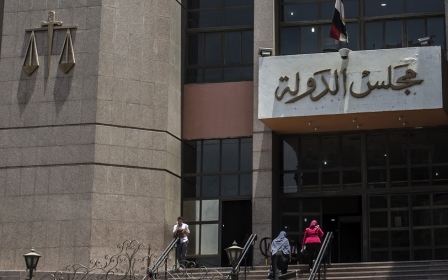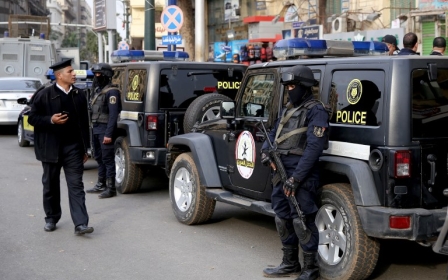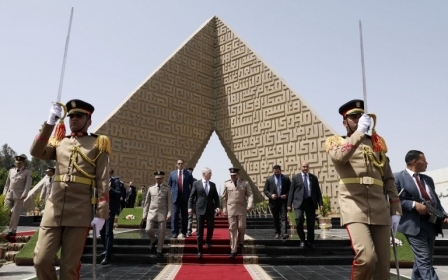Egypt crackdown 'aids radicalisation', UN rights boss says
UN High Commissioner for Human Rights Zeid Raad al-Hussein said on Monday that heavy-handed security measures by Egypt were fostering the very radicalisation it was looking to curb.
Egypt last month was shaken by one of the bloodiest attacks in years when Islamic State (IS) group suicide bombers targeted two Christian churches, killing 45 people. President Abdel Fattah al-Sisi declared a three-month state of emergency hours later.
Hussein condemned the church attacks at a news conference in Geneva but said that Egypt's approach to combating militants was exacerbating the problem.
"A state of emergency, the massive numbers of detentions, reports of torture, and continued arbitrary arrests - all of this we believe facilitates radicalisation in prisons," Zeid said.
He added that "the crackdown on civil society" was "not the way to fight terror".
Meanwhile, militants killed three policemen and injured five others in a shooting in Cairo late on Monday, the interior ministry said.
The militants drove by and shot down police stationed at an intersection of the ring road, a busy Cairo expressway, in the city's eastern neighbourhood of Nasr City, the statement said.
Responding to the Jordanian diplomat’s comments, Foreign Ministry Spokesman Ahmed Abu Zeid called the remarks an "irresponsible" and "unbalanced" reading of the situation in Egypt, where society is targeted by "terrorist operations," according to a statement from the ministry.
Abu Zeid defended the emergency law as passed by an elected parliament subject to "rules and restrictions" set out by the constitution.
"We don't see the High Commissioner criticising other states implementing states of emergency that are dealing with similar conditions," the statement said.
Sisi, elected in 2014 in part on a pledge to restore stability to a country hit by years of turmoil since its 2011 uprising, has sought to present himself as an indispensable bulwark against terrorism in the Middle East.
Rights groups, however, say they face the worst crackdown in their history.
"National security yes, must be a priority for every country, but again not at the expense of human rights,” said Zeid.
Egypt’s army has been accused of abuses, including extra-judicial killings, in its war against militants in Sinai. Cairo has also been criticised for criminalising dissent and restricting free speech.
Human Rights Watch has accused the Egyptian government of using torture and enforced disappearances against political opponents.
New MEE newsletter: Jerusalem Dispatch
Sign up to get the latest insights and analysis on Israel-Palestine, alongside Turkey Unpacked and other MEE newsletters
Middle East Eye delivers independent and unrivalled coverage and analysis of the Middle East, North Africa and beyond. To learn more about republishing this content and the associated fees, please fill out this form. More about MEE can be found here.




